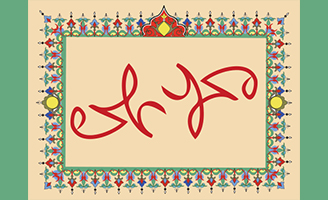Bayramoğlu: a partisan president
Ali Bayramoğlu in Yeni Şafak writes that political rumor before AKP’s congress had it that Davutoğlu would like to have included liberal names who have been critical of recent AKP policies, such as Ali Babacan, Bülent Arınç, Mehmet Şimşek, Sadullah Ergin and Beşir Atalay, in the party leadership. It was also claimed that Erdoğan was distanced to these names, and that he preferred others, close to him, and whose names are not associated with the fraternity [of Fethullah Gülen.] Insofar as Davutoğlu failed to pay attention to intra-party balances, he provoked the reaction of names like Binali Yıldırım, while many turned to Erdoğan, asking him to take charge of the situation. When Davutoğlu accepted these conditions, nearly sixty percent of the names in his list were replaced, and the final decider in the process was the president. Three conclusions can be drawn from this story. First, Davutoğlu did not succeed in his attempt to enlarge his sphere of autonomy. Second, insofar as the list that Davutoğlu presented led to his isolation within the party, it invited Erdoğan to enter the game. Third, this congress has shown that Erdoğan, alongside that he as president is taking an active role within the field of the executive, is also de facto imposing the model of “partisan presidency” by very openly assuming the function as the final decider of the internal affairs of a political party.
Baydar: silencing media to win the election
Yavuz Baydar in Bugün asks, what kind of game is it that is being played openly now with the suffocation of media? The preservation of power depends on the emergence of a three-party parliament at the polls on November 1. An equation of four parties will spell disaster. Thus, it is absolutely necessary on the hand that the HDP is left out of the parliament, and on the other hand, that MHP is undermined and its votes transferred to AKP. In order to achieve these goals, a never before seen manipulation of public opinion is called for. The “silent majority” in Turkey – the lower and middle classes – (at a rate of around 80 percent) follow only the TV channels as sources of information. And note that the efforts of the government to cut the media down to size have always been concentrated on the media groups that have TV channels. Of course, the turn will come to independent newspapers like Cumhuriyet, Taraf, Sözcü and Birgün as well after this. If their attempts to suffocate the media results in a backlash, if the distribution of votes among the parties do not change, the option to postpone these elections is kept as a card in the cupboard.
Alpay: authoritarianism is inscribed in the genetic code of our republic
Şahin Alpay in Zaman writes that Turkey has certainly entered a period of instability that is not going to be short-lived. No doubt, President Erdoğan is the chief responsible for this. Yet this fact should not lead us to overlook the main reasons for why calm and stability continue to elude Turkey. A multicultural country like Turkey, with its multiple identities, can only become calm and stable when freedom and a pluralistic democracy has been put in place. Unfortunately, the genetic code of the republic does not allow for this. Erdoğan is faithful to the founding tradition of the republic when he views every kind of opposition as treason and when he does not tolerate that civil society becomes stronger. The second founding stipulation of the republic was that a modern society could only be constructed if the whole of society was made Muslim and if Islam was controlled by the state through the State Directorate of Religious Affairs. Indeed, the AKP, which stands for Turkish nationalism mixed with a sauce of Islamism, does not recognize the freedom of belief and continues to impose the religion of the State Directorate of Religious Affairs.
The Portentous Legacy of “New Turkey”: Sectarianism Invited
By Halil Karaveli (vol. 8, no. 9 of the Turkey Analyst)
The Islamists no longer occupy the moral high ground in Turkey. And Islamization has at least to some extent ceased to serve the interests of Turkish capitalism. Yet what beckons is not the disappearance of the Islamic factor from Turkish politics, but its irruption in new, uncontrolled form. The legacy of the “New Turkey” – the catchword of the AKP regime – is a portentous exacerbation of sectarianism.

The Turkish Islamists See the Sunni Nation as the Solution to the Kurdish Problem
By Fatih Yaşlı (vol. 8, no. 7 of the Turkey Analyst)
Historically, Turkey’s Islamists have taken a view of the Kurdish problem that has made them the tacit allies of the Kurds, both standing in opposition to the founding ideology of the Turkish republic. As the Islamists see it, the Kurds are a pious, conservative people that together with the Turks constitute the “Muslim nation.” For the AKP, the solution to the Kurdish problem is spelled “Islamic fraternity.” This is the assumption that ultimately sustains the negotiations that the AKP has been conducting with the Kurdish political movement.




